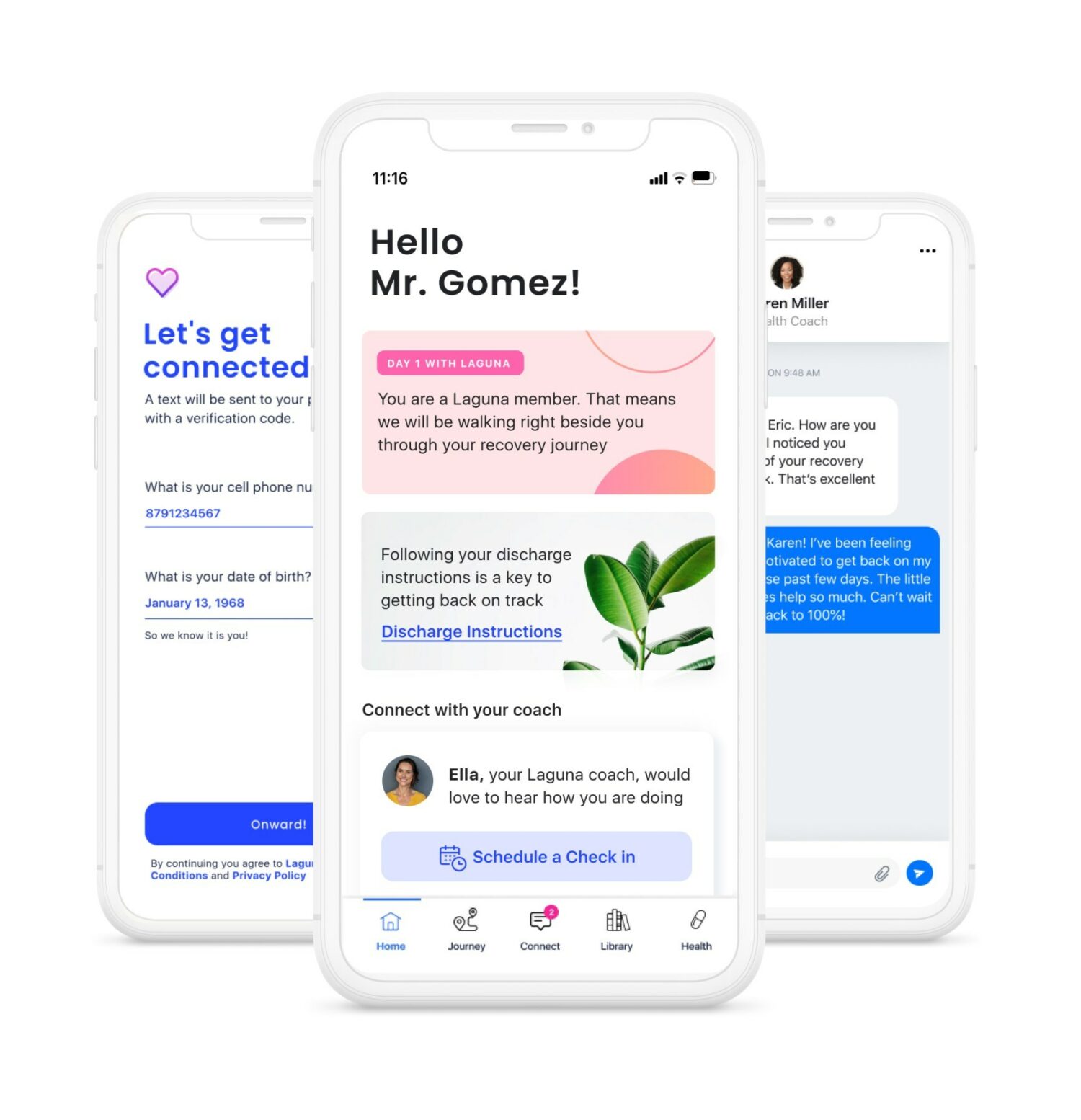
What You Should Know:
– Laguna Health today launched a full app experience to bridge the care gap between discharge and recovery. Currently, in a clinical trial with NorthShore University Health System, Laguna Health marries a proven clinical treatment model with a digital-first care team, personalized recovery plans, coaching, data-driven interventions and expansive behavioral health resources, now delivered in a friendly and accessible app-based environment.
– With two-thirds of hospital patients discharged to self-care at home, the new offering brings personalized, high-touch, digital-first care to the chronically underserved and abandoned patient segment. Available now for patients at sponsoring health systems and members of participating health insurance plans, Laguna Health aims to radically improve care experiences and care outcomes for patients who have moved through a hospital stay and have been discharged home to self-care.
In this chronically underserved leg of the care journey, vulnerable patients are often sent home with static, paper-based discharge instruction packets. Regardless of whether a patient has had a knee operation or surgery on a vital organ, no patient returns home eager and ready to analyze several pages of information.
Why It Matters
The sad reality is that the U.S. healthcare system expects most patients to return home without professional support, enduring post-surgical pain, mental fog, hampered mobility, medication side-effects and emotional trauma — including anxiety about their ability to maintain income and livelihood. In part due to a lack of support, more than a third of home-discharged patients transition to higher-cost settings over the course of a year. Yet research shows that at least half of all readmissions are preventable.
In phase one of a clinical trial with NorthShore University Health System, Laguna is seeing remarkably promising early results. To date, patients engaged with Laguna in their post-hospital care journeys have seen an 80% reduction in readmissions when compared to a control group of patients.
Among the new features Laguna Health is making available within its app experience:
– On-demand care team: Laguna’s professionals are focused on ensuring successful recovery in collaboration with patients’ existing physicians and healthcare teams. A multi-disciplinary group, Laguna’s care providers engage patients proactively and serve as on-demand resources 24/7.
– Coaching and emotional support: So often the emotional piece of recovery is more difficult than the physical. Laguna’s team of coaches and behavioral health specialists meet patients where they are, identifying critical needs, setting measurable goals, introducing proven motivators and overcoming barriers.
– Personalized recovery plans: Laguna offers step-by-step planning and guidance for every patient’s recovery journey, supported by coaching, education, monitoring, motivation and guidance. Recovery plans are evidence-based and informed by a rich clinical data set.
– Education: All patients have access to a curated content library relevant to their recovery journey, helping de-mystify medications, understand the healing process, identify potential recovery risks, and much more.
– Multimodal Engagement: Patients can tap in-app chat functionality or schedule video-based appointments to connect with their care team.
“The status quo in post-hospital recovery in the U.S. is unacceptable. Patients deserve better. Employers, payers and health plans shouldering a portion of the costs deserve better. Laguna Health is making better possible,” said Yoni Shtein, co-founder and CEO, Laguna Health. “Our early clinical studies with leading providers like NorthShore Health System are proving that digital-first care is the path forward to improving patient outcomes and driving down costs. We look forward to getting Laguna Health into the hands of more individuals as we continue to build out our clinical data set and codify post-hospital recovery.”